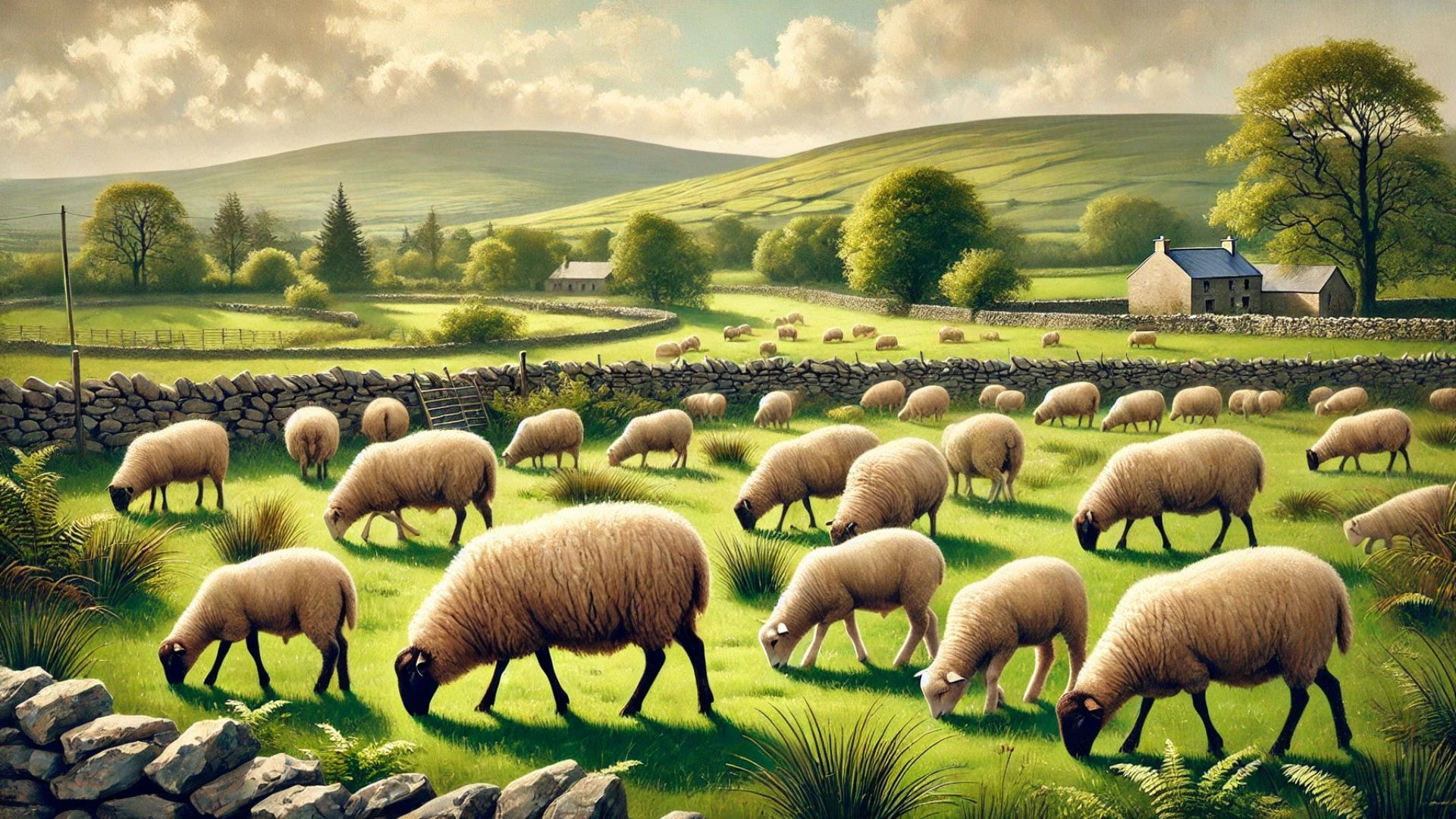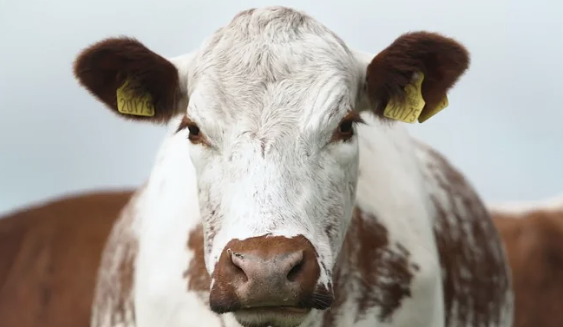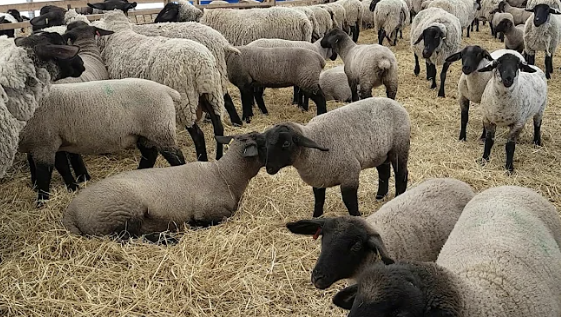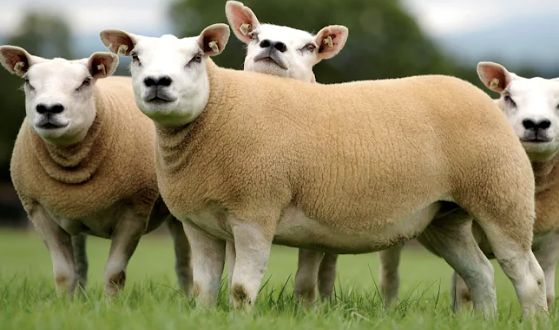
Sheep in Ireland play a significant role in Ireland's agricultural landscape. With its lush green pastures, Ireland is an ideal environment for raising sheep, making it one of the leading nations in sheep farming. These animals have been a part of Irish farming traditions for centuries, providing wool, meat, and dairy products.
Ireland is home to several popular sheep breeds, including the Suffolk, Texel, and Galway. Each breed is known for specific traits, such as wool quality or hardiness. Sheep farming continues to thrive across rural Ireland, contributing greatly to the local economy and sustaining rural communities.
Types of Sheep in Ireland
The types of sheep in Ireland include Galway Sheep, Suffolk Sheep, and Texel Sheep. Each breed holds its own significance within the agricultural landscape of Ireland. Galway Sheep, Ireland’s native breed, are prized for their hardiness and wool quality. Suffolk Sheep serve a dual-purpose role, appreciated both for their meat and wool. Finally, Texel Sheep are renowned for their meat production, offering robust flavors that are highly valued across markets. These breeds collectively embody the diversity and richness of Irish sheep farming.
Galway Sheep: Ireland’s Native Breed

The Galway Sheep are Ireland’s native breed, celebrated for their robust health and adaptability. These sheep are a staple in Irish pastures, originating from the west of Ireland. They are known for their white wool and docile nature.
Here are some key characteristics:
-
Wool: The wool is thick and lustrous, making it ideal for traditional Irish woolens.
-
Temperament: The Galway Sheep are known for their calm disposition.
-
Size: They are large with a strong build.
Farmers in Ireland cherish the Galway Sheep for their hardiness and the high quality of their wool, making them a popular choice for wool production across the country.
Suffolk Sheep: Popular Dual-Purpose Breed

In Ireland, the Galway Sheep, known as Ireland's native breed, and the Suffolk Sheep, a popular dual-purpose breed, are highly regarded. The Galway Sheep, with its dense white wool and docile nature, stands out in the green pastures of Ireland, symbolizing the country's rich agricultural heritage.
-
Recognized for its hardiness and adaptability, the Galway Sheep thrives in the wet Irish climate.
-
This breed is primarily raised for both its meat and wool, making it a valuable part of local agriculture.
Galway Sheep contribute significantly to the pastoral lifestyle that echoes the warmth and communal spirit of Irish celebrations.
Texel Sheep: Renowned for Meat Production

In Ireland, types of sheep such as Galway and Suffolk are prevalent, with Suffolk sheep being particularly popular as a dual-purpose breed. These sheep are highly valued for both their meat and wool, making them a staple in Irish agriculture.
-
Distinctive Appearance: Suffolk sheep are recognized by their black faces and legs, which contrast sharply with their white wool.
-
Economic Value: Known for their efficient growth rates and high-quality fleece, they are preferred for both meat production and textile applications.
This breed's adaptability and dual-purpose use make it a reliable and valuable resource for Irish farmers, enhancing both the agricultural and economic landscape.
Facts About Sheep in Ireland
Sheep farming in Ireland plays a vital role in the country's agricultural landscape, reflecting the warmth and camaraderie of rural communities. The industry is a cornerstone of both the local economy and culture. In this section, we explore various facets of sheep farming, including the sheep population, wool and meat production, seasonal lambing and breeding cycles, and the cultural traditions surrounding this practice, which underscore the integral role of sheep in Irish rural life.
Sheep Population in Ireland
The sheep population in Ireland has seen notable growth over the years. As of the latest data, Ireland is home to over 5 million sheep, making it a significant contributor to the agricultural landscape. This robust population ensures a steady supply of wool and meat, supporting both local and international markets.
-
Ireland ranks among the top European countries in sheep density.
-
The majority of these sheep are found in the rural, mountainous areas, thriving on the lush green pastures.
This strong sheep population not only supports traditional farming practices but also contributes to the charm and natural beauty of the Irish countryside, adding to its enduring appeal and character.
Wool and Meat Production in Ireland
Sheep farming in Ireland significantly contributes to the country's wool and meat production. Predominantly reared in the lush green landscapes of Ireland, these animals provide high-quality wool and meat that cater to both domestic and international markets.
-
Annually, Ireland produces approximately 10,000 tonnes of wool, primarily used in the textile industry.
-
Irish sheep meat is renowned for its flavor and quality, with over 70,000 tonnes produced each year.
Irish farmers prioritize sustainable farming practices, ensuring that the wool and meat products are environmentally friendly and ethically produced. These efforts not only support the local economy but also contribute to maintaining Ireland’s cultural heritage linked to sheep farming.
Seasonal Lambing and Breeding Cycles
In Ireland, sheep undergo seasonal lambing and breeding cycles. Most Irish sheep breeds start their breeding season in autumn, aligning with cooler weather conditions, which are ideal for sheep reproduction. This timing ensures that lambing occurs in spring, maximizing lamb survival rates due to milder weather and abundant pasture.
Key points:
-
Ewes are seasonally polyestrous, cycling back into heat if not impregnated.
-
Lambs are typically weaned at about 12 weeks.
-
The gestation period for sheep is approximately 147 days.
Farmers carefully manage these cycles to align with festive occasions, ensuring a flow of lamb supply for key celebrations throughout the year.
Interesting Cultural Traditions Around Sheep Farming
In Ireland, sheep farming intertwines deeply with cultural traditions. Celebrations often blend the pastoral with personal milestones amidst the backdrop of verdant fields. Key customs include:
-
Saint Brigid's Day: On February 1st, farmers traditionally begin preparing sheep for the lambing season. This day is festively marked as a start of new life, both for the lambs and for the community's hopes for prosperity and health.
-
Blessing of the Sheep: In rural communities, it's customary for priests to bless the sheep during the spring. This ritual ensures protection and health for the flock, symbolizing a weave of spiritual safety across the fields.
These traditions underscore a rhythm of life that has sustained generations, with sheep farming being pivotal to local customs and community well-being.
Where to Buy Sheep in Ireland?
In Ireland today, there are multiple avenues available for those interested in purchasing sheep, catering to both traditional sheep farmers and those who prefer modern conveniences. Local sheep markets and auctions are popular among sheep farmer(s) and breeders, providing a vibrant marketplace where various sheep breeds, including hardy mountain sheep, are available. These venues offer a direct way to interact with large groups of animals and their sellers, allowing for inspections and negotiations in person, which is a common sight in many rural areas across Ireland.
For buyers who value convenience and a broader selection, numerous online platforms specialize in livestock transactions. These websites provide detailed listings of sheep for sale across Ireland, including sheep from diverse sheep farms along rugged coastlines, complete with descriptions, health records, and breeding history. This digital approach simplifies the process of comparing different breeds and prices, enabling buyers to make informed decisions without the need to travel. This has become particularly valuable for the European Union livestock markets, allowing many farmers to connect and conduct transactions while spending time on their own farm.
Sheep Markets and Auctions
To purchase a sheep flock in Ireland, you can explore numerous sheep markets and auctions spread across the country. These vibrant events serve as crucial meeting points for farmers, traders, and buyers, all looking to trade in livestock, particularly sheep. Known for being a hardy animal, sheep in Ireland are well-suited to the country's climate and landscape. Attending these markets not only offers a chance to buy quality livestock but also to engage with the local farming community, sharing greetings and forging connections much like the warm wishes exchanged among friends on special occasions.
Here are some notable places:
-
Ballinasloe Fair: This historic fair in County Galway is one of Ireland's oldest and largest, offering a wide selection of sheep and other livestock. It's a bustling hub of activity where traditional trading meets festive celebration.
-
Blessington Mart: Located in County Wicklow, this mart is renowned for its quality sheep auctions, attracting buyers from across the country. It's well-regarded for its well-organized sales and the variety of sheep breeds available.
-
Roscommon Mart: A key spot in County Roscommon, known for its regular sheep sales. The mart is a focal point in the community, echoing the warmth and camaraderie typically found in Irish social gatherings.
These venues provide a reliable setting to find a diverse range of sheep breeds, suitable for both commercial farming and personal keeping. Whether you're a seasoned farmer or a newcomer to sheep rearing, these markets and auctions offer valuable resources and insights into the local agricultural landscape.
Online Platforms for Purchasing Sheep
You can purchase sheep online through several trusted platforms that specialize in livestock trading, making it easy for both farmers and hobbyists to find the right breeds. These platforms offer a variety of options, allowing you to browse and compare different sheep breeds from the comfort of your home. Whether you’re looking to buy a single sheep or expand your flock, these websites provide secure transactions and reliable connections with local sellers across Ireland.
Here are some trusted options:
-
DoneDeal.ie: One of Ireland’s largest online marketplaces. It offers a variety of sheep breeds from local farmers.
-
Irish Marts Online: This platform connects buyers with sellers across Ireland, featuring sheep auctions and private sales.
-
Farming Ads Ireland: A reliable website where you can find listings for different sheep breeds. Sellers typically offer detailed information about the livestock.
Each platform offers a wide range of sheep breeds and provides filters to help you refine your search based on location, price, and age. Many sellers also include details about the sheep’s health, breed, and lineage. Before making a purchase, it’s a good idea to review seller ratings and contact them directly to ask any specific questions about the livestock or to arrange a visit. Online platforms make the process straightforward and transparent, giving you confidence in your transaction.
Key Considerations When Buying Sheep in Ireland
Key considerations when buying sheep in Ireland depend on several factors that are crucial for both novice and experienced farmers. Sheep farming plays a significant role in Ireland’s agriculture, so making the right choice is essential for success. Whether you're purchasing for wool, meat, or breeding, evaluating each factor carefully ensures long-term productivity.
Before purchasing, consider the specific breed suited to your farm’s environment and market goals. Additionally, health checks, feeding needs, and legal requirements must be assessed to avoid potential challenges.
Considerations when buying sheep in Ireland:
-
Breed suitability: Choose breeds that thrive in Ireland's climate and match your farming objectives, such as Suffolk for meat or Galway for wool.
-
Health status: Ensure that sheep are free from diseases like foot rot and parasites, as poor health affects long-term profitability.
-
Age and condition: Younger sheep may require more care, while older sheep might have less productive years left.
-
Feeding requirements: Consider how much pasture you have and the feeding costs, as different breeds have varying nutritional needs.
-
Legal requirements: Verify that the sheep have proper identification tags and meet Ireland’s animal health regulations.
-
Transport: Ensure safe and legal transport of the sheep to avoid stress and injury during relocation.
By carefully assessing these factors, you can make informed decisions that suit your farm’s goals. It’s not just about price, but about choosing sheep that will thrive under your care and contribute to the success of your farming venture. Taking these steps guarantees a smooth buying process and healthy flock management for years to come.
FAQs On Sheep in Ireland
1. How many sheep are there in Ireland?
Ireland is home to approximately 3.8 million sheep. The country's lush green pastures make it ideal for sheep farming.
2. What are the most popular sheep breeds in Ireland?
The most popular breeds in Ireland include Suffolk, Texel, and Galway sheep. These breeds are valued for their wool and meat.
3. Why is sheep farming important in Ireland?
Sheep farming plays a vital role in Ireland’s agriculture. It supports rural communities and contributes significantly to the economy.
4. What do sheep eat in Ireland?
Sheep in Ireland primarily graze on grass. During the winter months, they may be fed hay or silage.
5. How long do sheep live in Ireland?
Sheep in Ireland typically live around 10 to 12 years. Their lifespan depends on factors like breed and care.
